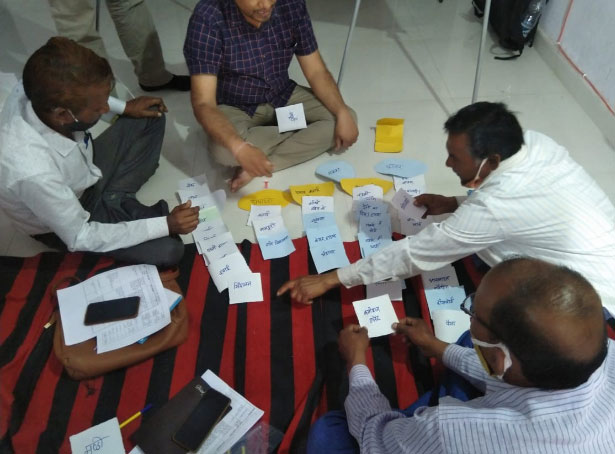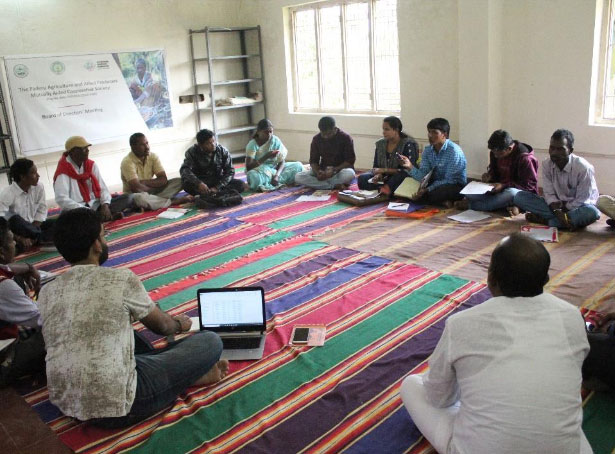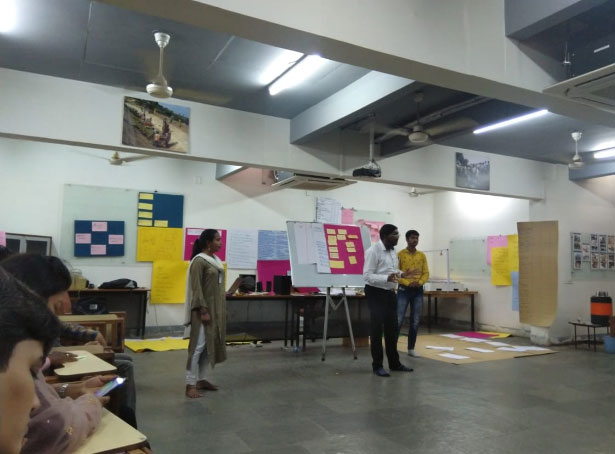- Home
- Sashakt Kissan
Sashakt Kissan
There are over 8000 Farmer Producer Organisations (FPOs) in India and the Government has issued notifications towards promoting another 10,000 FPOs in the country. These democratic institutional forms are recognised as vehicles of change and are expected to transform the way farmers upgrade their technologies, manage various resources for production purposes, tap into supply chain efficiencies and negotiate with market players.
Despite their rapid and continuing spread there are challenges in ensuring sustainability of FPOs, as member owned institutions, beyond the project period. Perhaps most critical, and yet less discussed, among the challenges that FPOs face is building both capacities and confidence of Board of Directors to own, operate and expand these institutions
Facilitating and catalysis cooperation where the FPO’s primary stakeholders have a good understanding of the functioning and business strategies of the FPOs is critical. This is not achieved through conventional classroom based training and capacity building approaches, but needs facilitated dialogue, and the creation of participatory learning platforms where the FPOs and the ecosystem players can interact openly in an atmosphere of trust and openness to learn.
Despite their rapid and continuing spread there are challenges in ensuring sustainability of FPOs, as member owned institutions, beyond the project period. Perhaps most critical, and yet less discussed, among the challenges that FPOs face is building both capacities and confidence of Board of Directors to own, operate and expand these institutions
Facilitating and catalysis cooperation where the FPO’s primary stakeholders have a good understanding of the functioning and business strategies of the FPOs is critical. This is not achieved through conventional classroom based training and capacity building approaches, but needs facilitated dialogue, and the creation of participatory learning platforms where the FPOs and the ecosystem players can interact openly in an atmosphere of trust and openness to learn.
Sashakth Kisaan: Skilling FPOs towards Sustainability
Skillgreen is trying to address this gap through its Sashakth Kisaan FPO initiative. We see ourselves as facilitators, who work primarily to create these spaces for dialogue between the FPOs and the ecosystem players, with the primary stakeholders at the core.
We do this through need-based and customised participatory learning events, that are not trainings but facilitated learning sessions. The sessions are conducted in local language by trained facilitators that are available locally and understand the local context of the FPOs on one hand and the priorities of the ecosystem players on the other hand. We specialise in asking the right questions and encouraging the participants (FPO directors / staff / promoting organisation staff) to find the answers jointly. We do this through a well-structured and open source trainers manual. (http://www.birdlucknow.in/wp-content/uploads/2020/03/1.-TOT-Manual-for-BODs-of-FPO.pdf )
As the participants’ understanding grows, the circle of influence grows, and more stakeholders join the dialogue with the FPOs — the topic for dialogue shifts from internal governance to statutory compliances to understanding the market to business planning to financial and human resource management.
Learning leads to action, and action leads to learning, setting off a virtuous cycle of action-based learning. We work with promoting agencies, financing partners, technical support agencies and market linkage partners, as each of these stakeholders’benefits when the FPO grows. Working with and through the ecosystem is important to make these capacity building services accessible to the FPOs. A snapshot of our collaborative work in numbers
We do this through need-based and customised participatory learning events, that are not trainings but facilitated learning sessions. The sessions are conducted in local language by trained facilitators that are available locally and understand the local context of the FPOs on one hand and the priorities of the ecosystem players on the other hand. We specialise in asking the right questions and encouraging the participants (FPO directors / staff / promoting organisation staff) to find the answers jointly. We do this through a well-structured and open source trainers manual. (http://www.birdlucknow.in/wp-content/uploads/2020/03/1.-TOT-Manual-for-BODs-of-FPO.pdf )
As the participants’ understanding grows, the circle of influence grows, and more stakeholders join the dialogue with the FPOs — the topic for dialogue shifts from internal governance to statutory compliances to understanding the market to business planning to financial and human resource management.
Learning leads to action, and action leads to learning, setting off a virtuous cycle of action-based learning. We work with promoting agencies, financing partners, technical support agencies and market linkage partners, as each of these stakeholders’benefits when the FPO grows. Working with and through the ecosystem is important to make these capacity building services accessible to the FPOs. A snapshot of our collaborative work in numbers
Sashakth Kisaan: Skilling FPOs towards Sustainability
The Infrastructure facilities are likiwise
No of States where FPOs have availed our learning facilitation services (through our network partners in these states)
14
No of FPOs have availed our services so far
85
No of partners that we work with (promoting agencies, agri-finance agencies, government programmes) in offering the services
40
No of facilitators from partners across the country that have undergone TOT and familiar with using the participatory methods from the manual
145
Estimated number of FPO Directors / CEOs that have been part of facilitated learning sessions
400+
What does it do? building motivation, generating action, and trust within FPOs
The programme creates first, excitement and curiosity among the participants about FPOs and a motivation to make it work. Secondly, it sets off a series of actions that are required for the growth of the FPO — such as mobilising share capital, formation/strengthening of FIGs, the fulfilment of statutory compliances, experiments in business activities, preparing business and action plans and so on. Thirdly, it creates trust and rapport among the FPO and the ecosystem players who are part of the learning and action, thereby creating the foundation for the long-term growth of the FPO. This approach essentially resolves the paradox of organising the farmers into an institutional structure to be competitive, reduce the agency costs and higher proportion of costs inherent in sustaining demoractic institutions.





GET LATEST UPDATES!
When an unknown printer took a galley of type and scrambled it to
make a
type desktop publishing software like Aldus PageMaker
including versions of
Lorem Ipsum.